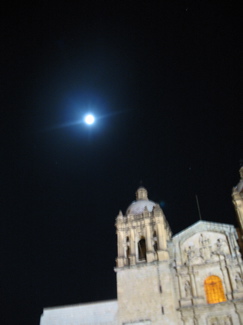
I find Alejo Carpentier’s The Chase to be a compelling and disconcerting work. The flowing style of the English translation full of chronologically digressive subordinate clauses I believe remains close to the original (from reading a short story in the original believe the translation conveys his style quite well – but note: the scholarship student speaks of Aztec eagle and leopard warriors – this should be eagle and jaguar -tigres o jaguars- warriors).
The novel follows four principal characters – the ticket taker-music student, the former architecture student, the old woman, his former wet nurse and later landlord, living in the house with the belvedere. Carpentier explores the deteriorating mental state of the former student as he seeks refuge with the old woman, takes her food so she starves to death waiting to extort financial and visa security from a high official, reflected thematically in the crumbling buildings of the city around him.
A pivotal moment finds Estrella (she is the only named character) the prostitute recognizing the student as a whore, though I need to ponder more what connection Carpentier suggests between Estrella and the architecture student – I think they parallel each other, in the long description of Estrella’s observance of Holy Week and how she has detached her body from her core sense of self. The architecture student has a religious revelation after he doesn’t eat for 2 days, then proceeds to take all the old woman’s food while holding on to his concept that he has religious insight. Is this an order of magnitude worse than Estrella? Or a parallel?
The passing of the thought-to-be counterfeit note has a parallel in Tolstoy’s short story The forged note, the theme of which Robert Bresson used in his remarkable film L’Argent. Carpentier, however, if he was developing Russian literary themes, strikes me as exploring Dostoyevsky (Notes from Underground) rather than Tolstoy.

Interesting comment regarding the possible relationship between Carpentier and Tolstoy. He was, obviously, knowledgeable of both authors.
ReplyDelete